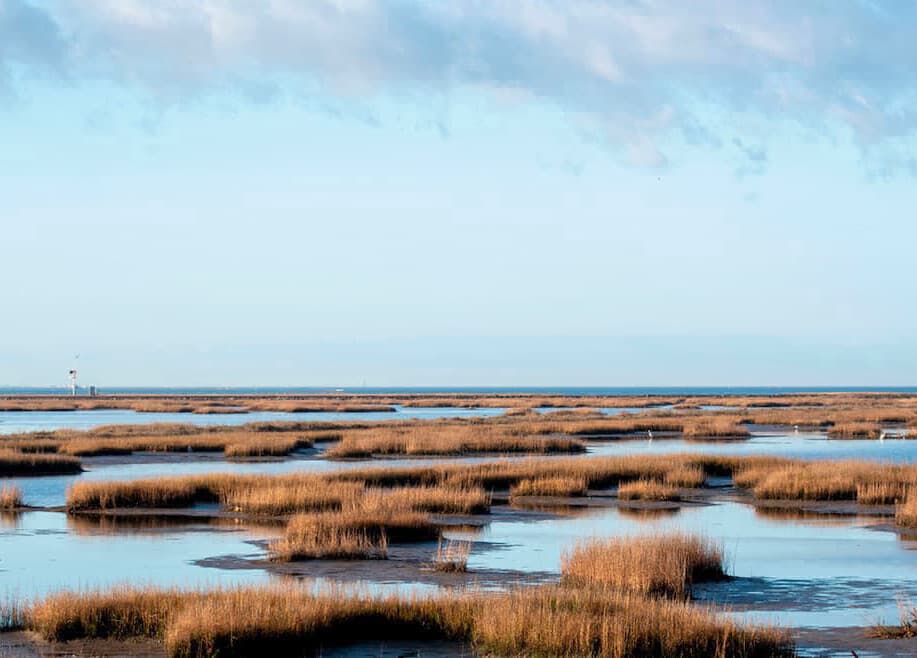Celebrate Wetlands On World Wetlands Day
 Wetlands in Galveston County
Wetlands in Galveston County Celebrate wetlands with World Wetlands Day, February 2nd, 2024!
Many people across the globe are oblivious to the significant impact wetlands play in their lives: Almost half of Earth’s plants and animals call them home, they filtrate human-made pollutants, reduce erosion and combat flooding. Humans reap the benefits, as wetlands protect communities, provide clean water and support tourism and recreational industries. However, if steps are not taken to protect these natural resources, wetlands could disappear forever.
According to the U.S. National Park Service, a wetland is defined as a “low-lying land area saturated with water, either permanently or seasonally, and containing hydric soils and aquatic vegetation.” Wetlands can be either fresh or saltwater and can include bogs, deltas, mudflats, swamps and marshes. Regardless of what they are called, wetlands serve as a critical transition between land and water, with each one’s ecosystem dependent on several factors, including climate, location and hydrology, or the frequency and extent of flooding in the area. These make wetlands one of the most biologically diverse ecosystems in the world, sustaining a high level of biodiversity with a wide breadth of flora and fauna. Although wetlands only cover six percent of Earth’s land surface, they host forty percent of all animal and plant species.
A wetland’s vegetation serves an important function; it acts as a natural water filter. It slows the flow of water, absorbing physical, chemical, and biological pollutants as they pass through, resulting in cleaner water. Roots of these plants also prevent erosion by absorbing energy from fast-flowing waters and holding the soil in place. During hurricanes or other flood events, wetlands act as natural sponges, slowing and absorbing excess water and reducing damage caused by flooding.
Despite their amazing natural functions, wetlands are Earth’s most threatened ecosystem. They disappear at a rate three times faster than forests, falling victim to pollution, damming and conversion for agriculture and construction.
“Wetlands are integral to a healthy natural environment and to coastal communities like Galveston,” said Dr. Anna Armitage, professor and the Department of Marine Biology’s interim department head. “World Wetlands Day is a great time to start volunteering with a local organization like Galveston Bay Foundation, Artist Boat or Houston Audubon to restore our coastal wetlands, and to educate and inspire others to take action to protect these important habitats.”
World Wetlands Day was established to raise global awareness about wetland conservation. The annual observance date marks the adoption of the international treaty, the Convention on Wetlands, in Ramsar, Iran, on February 2, 1971. This year’s theme, “Wetlands and Human Wellbeing,” highlights the connection between wetland stability and human lives.
Media Contact
Division of Marketing & Communications
marcom@tamug.edu